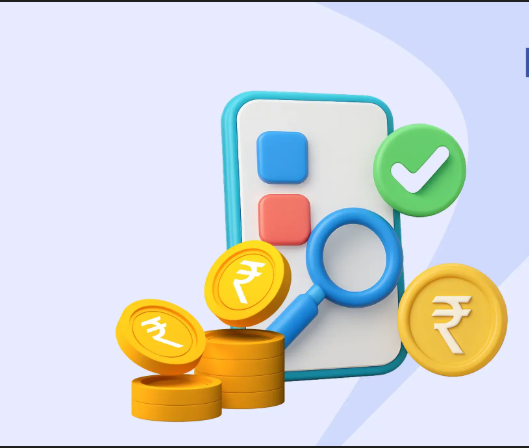News
Debt Relief Solutions That Put You Back in Control

Living with debt can feel like trying to run a marathon with weights strapped to your legs. Every step forward is harder, and the finish line seems impossibly far away. But you’re not alone-and more importantly, you’re not without options.
Debt relief solutions are available to help you regain control of your finances, reduce stress, and take concrete steps toward long-term stability. This article explores practical debt relief options, how they work, and how to choose the right one for your situation. Read on.
What Is Debt Relief?
Debt relief refers to a range of strategies designed to reduce or restructure your outstanding debt. These solutions aim to make debt more manageable-either by lowering interest rates, reducing the total amount owed, or adjusting payment terms to fit your budget. The right solution depends on your total debt, income, credit score, and financial goals.
Debt Consolidation
Debt consolidation involves merging several debts into one loan or credit account. This makes repayment easier by replacing multiple monthly payments with a single one, often at a reduced interest rate.
There are several ways to consolidate debt. Some people use personal loans to pay off high-interest credit card balances. Others opt for balance transfer credit cards with zero-percent introductory rates. Homeowners may consider using a home equity loan or line of credit (HELOC) to access lower-interest financing.
Debt consolidation offers several benefits. It simplifies your monthly finances, potentially reduces your interest costs, and can improve your credit score over time-if you consistently make on-time payments.
However, it usually requires good credit to qualify for favorable terms. Some consolidation options, like HELOCs, also involve putting up collateral, such as your home, which adds risk if you default.
Credit Counseling and Debt Management Plans (DMPs)
Credit counseling involves working with a certified nonprofit counselor who can help you create a budget, understand your financial situation, and explore debt solutions. If appropriate, the counselor may recommend enrolling in a Debt Management Plan (DMP).
A DMP lets you make one monthly payment to the counseling agency, which then sends the money to your creditors. In many situations, the counselor works with creditors to reduce interest rates and remove fees, making it more manageable to pay off your debt within three to five years.
This approach does not require taking out new loans and offers professional support throughout the process. However, not all creditors may participate, and you’ll likely be required to close your credit cards while enrolled, which can impact your credit score temporarily.
Debt Settlement
Debt settlement involves negotiating with creditors to accept a lump-sum payment that is less than the total amount owed. This option is typically considered by individuals who are behind on payments and facing financial hardship.
When successful, debt settlement can reduce your debt significantly and help avoid bankruptcy. It also provides an endpoint, allowing you to move on from burdensome financial obligations.
However, debt settlement can harm your credit score-especially if you stop making payments while negotiating. There may also be tax consequences, since forgiven debt may be considered taxable income. It’s crucial to work with a reputable, accredited settlement company, as the industry includes many unreliable operators.
Bankruptcy
Bankruptcy is a legal process that can eliminate or reorganize most unsecured debts. It’s a serious decision but can be a powerful form of debt relief for those in severe financial distress.
There are two main types of personal bankruptcy. Chapter 7 involves liquidating non-exempt assets to discharge eligible debts, while Chapter 13 creates a repayment plan based on your income, typically lasting three to five years.
The biggest benefit of bankruptcy is that it provides legal protection from creditors and can erase large amounts of debt. It stops collection calls, wage garnishments, and lawsuits. However, it significantly impacts your credit and can remain on your credit report for seven to ten years. Additionally, not all debts are dischargeable-student loans, tax debt, and child support generally remain.
DIY Debt Payoff Strategies
If your debt is manageable and you have a steady income, you may choose to tackle it yourself. Two well-known methods include the snowball and avalanche approaches.
The snowball method focuses on paying off the smallest debt first while making minimum payments on the others. Once the smallest debt is gone, you apply that payment to the next smallest, and so on. This method builds motivation through quick wins.
The avalanche method prioritizes debts with the highest interest rates. It saves more money over time by reducing the amount of interest you pay.
Both strategies offer full control without involving third parties. However, they require consistency, strong budgeting, and do not reduce interest rates or negotiate better terms with creditors.
Refinancing
Refinancing is the process of replacing an existing loan with a new one that offers better terms. This is common for mortgages, auto loans, and student loans. If you qualify, refinancing can lower your monthly payment or interest rate and help you repay the debt faster.
For example, refinancing student loans can reduce your interest costs, especially if you have a strong credit history. However, refinancing federal student loans with a private lender means losing benefits like income-driven repayment plans and federal forbearance options.
Whether refinancing is a smart choice depends on your credit score, current loan terms, and future financial needs.
How to Choose the Right Debt Relief Option
Choosing the right debt relief solution begins with a clear understanding of your financial picture. Consider how much debt you owe, whether you’re current on payments, how much you earn each month, and what your credit score looks like. Think about your long-term goals: do you want to preserve your credit rating, become debt-free as quickly as possible, or simply reduce your monthly burden?
If you’re unsure where to start, reaching out to a certified nonprofit credit counseling agency can be a great first step. Many offer free consultations and can help you evaluate your options objectively. Check out debt relief Florida to learn more.
Take Care of Your Financial Health
Debt may feel like a burden you’ll never shake, but there are real, effective solutions available to help you take back control. Whether you choose consolidation, settlement, counseling, bankruptcy, or a DIY approach, the most important step is action.
Debt relief doesn’t mean failure-it means making a strategic choice to improve your future. Take the first step. Explore your options.
If you want to read more articles, visit our blog.
-

 Rappers1 year ago
Rappers1 year agoGloRilla Net Worth: Height, Age, Bio, Real Name & Career
-

 Businessman1 year ago
Businessman1 year agoBrandon Fugal Net Worth: How Rich is Skinwalker Ranch Owner?
-

 Rappers3 years ago
Rappers3 years agoBigXthaPlug Net Worth: Height, Age, Real Name & Career
-

 TV Stars1 year ago
TV Stars1 year agoKaleb Cooper Net Worth: How Rich is the TV Star Actually?
-

 Internet Stars3 years ago
Internet Stars3 years agoMufti Menk Net Worth: How Rich is the Islamic Speaker Actually?
-

 TV Stars1 year ago
TV Stars1 year agoCarla Diab Net Worth: How Rich is the TV Star Actually in 2025?
-

 Businessman2 years ago
Businessman2 years ago7 Proven Lead Generation Strategies To Implement in 2023
-

 Rappers1 year ago
Rappers1 year agoDD Osama Net Worth: Height, Age, Real Name, Career & More
























You must be logged in to post a comment Login